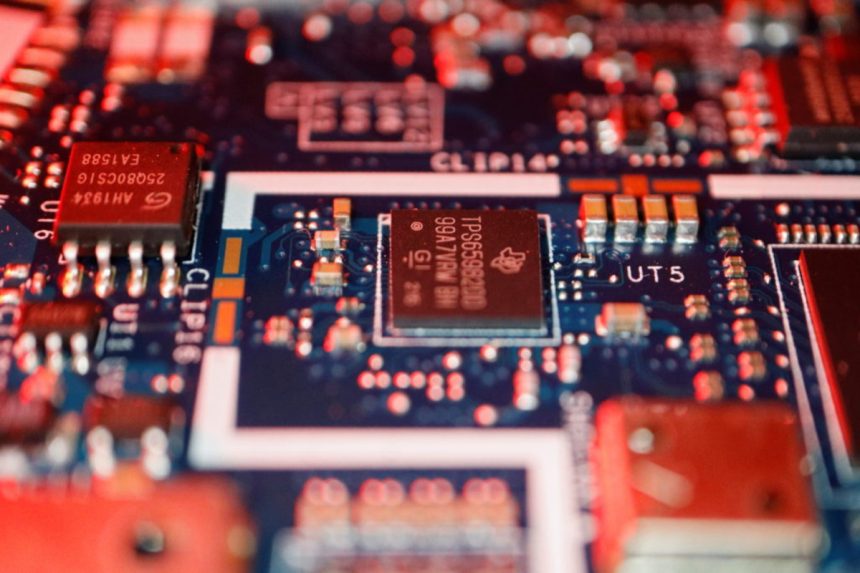President Joe Biden has authorized the application of the Defense Production Act (DPA) to enable domestic production of high-quality multi-layer motherboards required for advanced chips manufactured using leading-edge process technologies. This declaration was signed to ensure that such motherboards can be produced within the country. The DPA will offer $50 million to support the domestic PCB and advanced chip packaging industries. The main objective of this move is to facilitate the production of printed circuit boards (PCBs) within the United States.
Over the past few decades, the high-tech industry has migrated from the United States to Asia, affecting the production of various electronic components, including sophisticated semiconductors, high-volume consumer electronics assembly, chip packaging, and printed circuit boards (PCBs). PCBs are crucial to operating all electronic devices, from simple computer peripherals to critical military equipment. Thus, the ability to domestically manufacture advanced PCBs is a crucial national security matter.
The presidential determination has authorized the Department of Defense to utilize $50 million to provide DPA Title III incentives, including purchase commitments and purchases, to support the PCB and Advanced Packaging industries in the United States. This initiative aims to assist in producing advanced chips by ensuring that the essential components, such as PCBs, are domestically manufactured.
The U.S. government supports the production of printed circuit boards (PCBs) for critical sectors like national defense, healthcare, and energy within the country. The Department of Defense (DoD) will provide subsidies to companies that will equip them with the technological know-how and capabilities to manufacture advanced boards for various sectors. It remains to be seen whether this effort will eventually result in the return of graphics cards or P.C. motherboard production to the United States, but it is possible. By providing such subsidies, the DoD aims to promote the domestic production of advanced chips by facilitating the local manufacturing of essential components, such as advanced boards.
To conduct testing of their devices, several companies produce motherboards for their products in the U.S. before they start mass production in Asia. Offering appropriate financial incentives could motivate American companies to expand their domestic PCB and packaging operations, meeting their domestic clients’ needs.
President Biden emphasized in a memorandum that the U.S. industry is unlikely to promptly provide industrial resources, materials, or critical technology items without invoking section 303 of the Defense Production Act (DPA). The memorandum stresses the necessity of utilizing the DPA to ensure the timely production of crucial components such as motherboards within the country.
To address this issue, President Biden authorized the Defense Production Act (DPA) to support the domestic PCB and advanced chip packaging industries with $50 million in incentives. The Department of Defense will provide DPA Title III incentives to support these industries, including purchases and purchase commitments.
The goal is to improve American companies’ technological capability and know-how, enabling them to produce advanced PCBs for national defense and other crucial sectors in the country, such as energy and healthcare. A
dditionally, with the right financial incentives, some American companies, including major players such as AMD, Apple, Google, Intel, and Nvidia, could expand their PCB and packaging operations in the U.S. to serve domestic clients, potentially bringing production of graphics cards or P.C. motherboards back to the country.
The U.S. government is also taking further steps to boost domestic semiconductor production. The government is investing $52 billion to support the domestic semiconductor industry. It is also working on legislation establishing a new federal grant program to support the construction of new semiconductor fabrication facilities in the U.S.
The global semiconductor shortage has highlighted the U.S.’s dependence on foreign semiconductor production, particularly from Asian countries such as Taiwan and South Korea. The U.S. government‘s initiatives aim to reduce this dependence and increase domestic semiconductor manufacturing capabilities to meet the growing demand for advanced chips.
Supporting domestic PCB manufacturing is also crucial to this effort since high-quality PCBs are essential for producing advanced chips with leading-edge process technologies. By keeping the domestic production of PCBs, the U.S. government aims to strengthen the entire semiconductor supply chain in the U.S. and make the country more self-sufficient in this critical industry.


